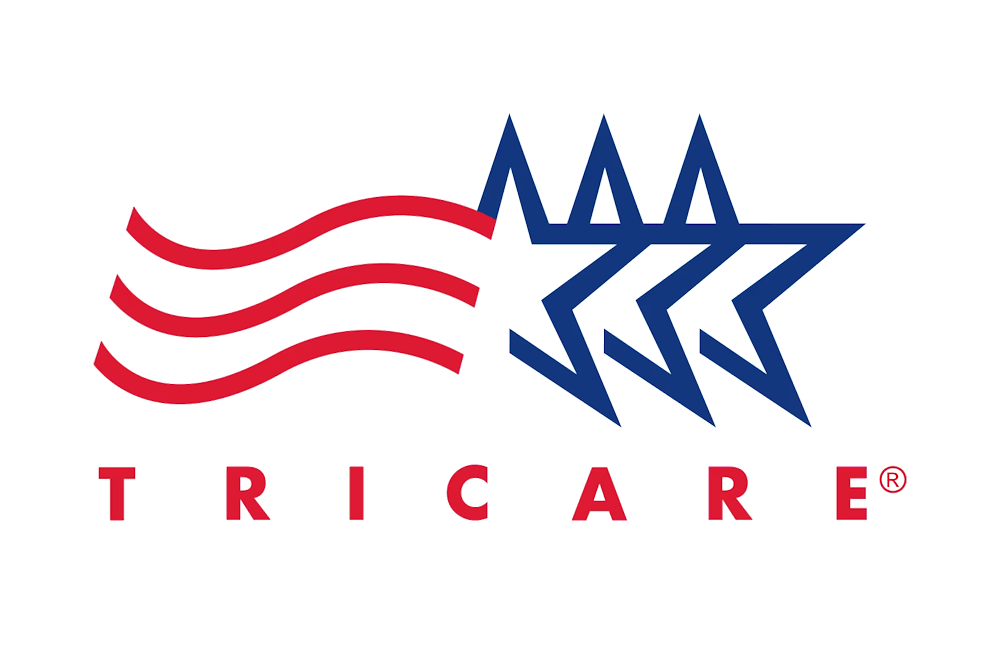TRICARE Insurance Coverage for Drug and Alcohol Rehab
Historically, health care for military members and their dependents was provided in military medical centers. Sometimes it was delivered by civilian medical providers through a system of referrals when military physicians weren’t available or when there was overcrowding in a military medical facility.
What is TRICARE Insurance?
TRICARE insurance is the health care program of the United States Department of Defense Military Health System and it’s managed by the Defense Health Agency. That means that the Department of Defense operates a health care system that provides medical coverage for about 9.5 million beneficiaries, as of the end of fiscal year 2022.
What Does TRICARE Cover?
- Who enrolls
- What plan is the member enrolled in
- The needs of the member
Each of these factors affects what the benefits are and what the out-of-pocket expenses may be. In general, TRICARE covers:
Preventative care is basic health care. The purpose of preventative care is to establish wellness while preventing bigger problems. It can also help identify possible health issues in the future.
This coverage includes treatment to promote good mental health through:
- Family and individual therapy
- Substance abuse treatment
- Eating disorder treatment
- Psychological testing
- Behavioral evaluation
Benefits eye exams and necessary correctives such as glasses or contacts.
Pharmacy benefits offer access to filling and receiving prescription medications.
This care is separate from the healthcare program and needs to be enrolled separately.
Does TRICARE Cover Drug and Alcohol Rehab?
As part of its mental health coverage, TRICARE does offer substance use disorder (SUD) treatment. Covered drug and alcohol addiction services include:
Inpatient treatment services are covered for people who are suffering from a medical or psychiatric emergency and need immediate hospitalization. If you are suffering from SUD or a mental health disorder, TRICARE covers emergency inpatient services for:
- Detoxification–Detoxification is the first step in recovery. It’s the process of
clearing the toxins (drugs or alcohol) from the body. - Stabilization–Stabilization involves stabilizing mental and physical health while going through withdrawal.
- Any other complications as a result of the disorder–Drug and alcohol addiction can cause mental and physical complications such as liver disease and bipolar disorder.
You may qualify for an Intensive Outpatient Program if you:
- Are diagnosed with mental health issues or SUD
- Don’t need full-time inpatient care
- Need:
- Stabilization
- Reduction of addiction symptoms
- Relapse prevention service
- Want treatment for mental health disorders that are not fully stabilized
- Need a higher level of outpatient care than you’re currently receiving
- Are transitioning from:
- An inpatient treatment program
- A psychiatric residential treatment program
- A partial hospitalization program (PHP)
- Standard outpatient services
If you have SUD, TRICARE covers the management of your withdrawal symptoms during detox before attending:
- Emergency and non-emergency inpatient services
- IOPs
- Partial hospitalization programs
- Opioid treatment programs
- Office-based opioid treatment
- Residential treatment
You may qualify for a PHP if you:
- Have SUD or mental health disorder issues
- Are still able to function in certain major life areas
- Don’t require full-time hospitalization
- Have issues that interfere with normal functioning
- Need medically monitored withdrawal symptom (detoxification) management
- Require stabilization, have serious symptoms, need treatment for partially stabilized mental health disorders
- Aren’t able to maintain your recovery with a lover level of outpatient care
- Are transitioning from an inpatient program
Medication-Assisted Treatment programs:
- Integrate drug and mental health therapy methods
- Are covered when the authorized TRICARE provider has Drug Enforcement Agency certification to prescribe buprenorphine (used for the medical treatment of people with an opioid use disorder, such as heroin or other opioids)
You might qualify for an opioid treatment program if you:
- Have an opioid use disorder (OUD)
- Need a medically supervised detox with direct access to medical help
- Require medical support, but don’t need a 24-hour medical environment
Treatment in a physician’s office is possible but the provider must conform to the regulations:
- Department of Health and Human Services
- Drug Enforcement Agency
- Local and state governments
TRICARE insurance covers residential rehab facilities. A residential center helps you with:
- Managing your withdrawal symptoms (detox)
- Rehabbing from SUD conditions
You may qualify for residential care if you:
- Have a primary diagnosis of SUD
- Have symptoms or the potential for symptoms that are:
- Severe enough to need inpatient care and physician management
- Less severe, but still need full-time inpatient supervision
- Causing you to have trouble functioning in certain life areas
TRICARE provides coverage for the treatment of many types of mental health disorders. The inpatient and outpatient treatment covered by TRICARE includes:
- Individual and group therapy sessions
- Family Counseling
- Psychoanalysis (a method of analyzing and treating emotional disorders) sessions if your provider has the proper certification and it has been preauthorized
- Psychological testing and evaluation, to help with your diagnosis and devise a treatment plan
- Psychotropic drugs, when prescribed as part of the treatment plan
- Additional therapies when they’re part of a treatment plan in a program at one of the covered treatment facilities
During the COVID-19 pandemic, the Military Health System implemented health options for people while they practiced social distancing. Due to that, TRICARE now covers telehealth services for SUD and mental health treatment. Choices include services for mental health and substance use including:
- Group and individual psychotherapy
- Family Counseling
- Crisis management
Depending on your TRICARE plan, you may need authorization before receiving telehealth services.
Who Does TRICARE Cover?
- active duty service members (ADSMs),
- active duty family members (ADFMS),
- members of the National Guard, Reserves, their family members,
- retirees and their family members,
- survivors,
- children,
- former spouses,
- Medal of Honor recipients and their families,
- dependent parents and parents-in-law,
- Foreign Force members and their families, and
- beneficiaries who are eligible for TRICARE and Medicare.
Types of TRICARE Plans
- TRICARE Prime–a managed care option available in Prime Service Areas
- TRICARE Prime Remote–a managed care option available for people in remote areas of the U.S.
- TRICARE Select–a self-managed preferred provider organization (PPO) in the U.S.
- TRICARE For Life–a Medicare-wraparound coverage if you’re eligible for TRICARE and have Medicare Part A and B.
- TRICARE Reserve Select–available worldwide for qualified Selected Reserve members and families.
- TRICARE Young Adult–can be purchased by qualified adult children after their regular TRICARE coverage ends.
- TRICARE Plus–a primary care program offered by some military hospitals and clinics
- US Family Health Plan–an extra TRICARE Prime option available in six areas of the U.S.

Where to Get Care
- Military Clinics and Hospitals
The Defense Department operates many hospitals and clinics where you may be able to receive care.
- Civilian Network
You can receive care from a civilian network of TRICARE-authorized providers. It depends on what region you’re in.
- Non-Network Providers
You may also be able to see a non-network TRICARE-authorized provider, depending on your plan. In this case, you may have higher costs and may have to file your claims yourself.
Ambrosia Treatment Center Now Accepts TRICARE Insurance
Historically, the abuse of illicit drugs, alcohol, and tobacco is common in the military. This has resulted in many combat veterans and active duty personnel having trouble adjusting when they return from military service and while still on duty. Ambrosia Treatment Center can help you whether your addiction is mild or severe. We can provide detox, medication-assisted treatment, and several outpatient programs.
Our experienced mental health professionals are skilled in therapies for anxiety, PTSD, depression, and trauma, among other issues. Don’t try to handle this on your own. It often leads to another major problem.
Mental health disorders and substance use disorders often go hand-in-hand for former and current active-duty personnel. The co-occurrence of SUD and a mental health problem is known as a dual diagnosis. Post-Traumatic Stress Disorder (PTSD) is a common mental health issue for veterans who frequently self-medicate with alcohol or drugs. Both issues should be treated at the same time by the same treatment team.
Ambrosia is experienced in treating all these situations. Let us take care of you while you focus on taking care of yourself. Contact us today.


Dr. Alam is an internationally renowned psychiatrist with academic affiliations with Northwestern University and University of Illinois, Chicago where he completed his residency training. He has been a principal investigator for over forty studies and has been involved in research leading to the approval of most psychiatric medications currently on the market. He is the founder of the Neuroscience Research Institute which continues to conduct research on cutting edge medication and interventional psychiatry. Dr. Alam is a Distinguished Fellow of the American Psychiatric Association and the American Society of Addiction Medicine. He has won several awards and has been featured extensively on radio and television.








